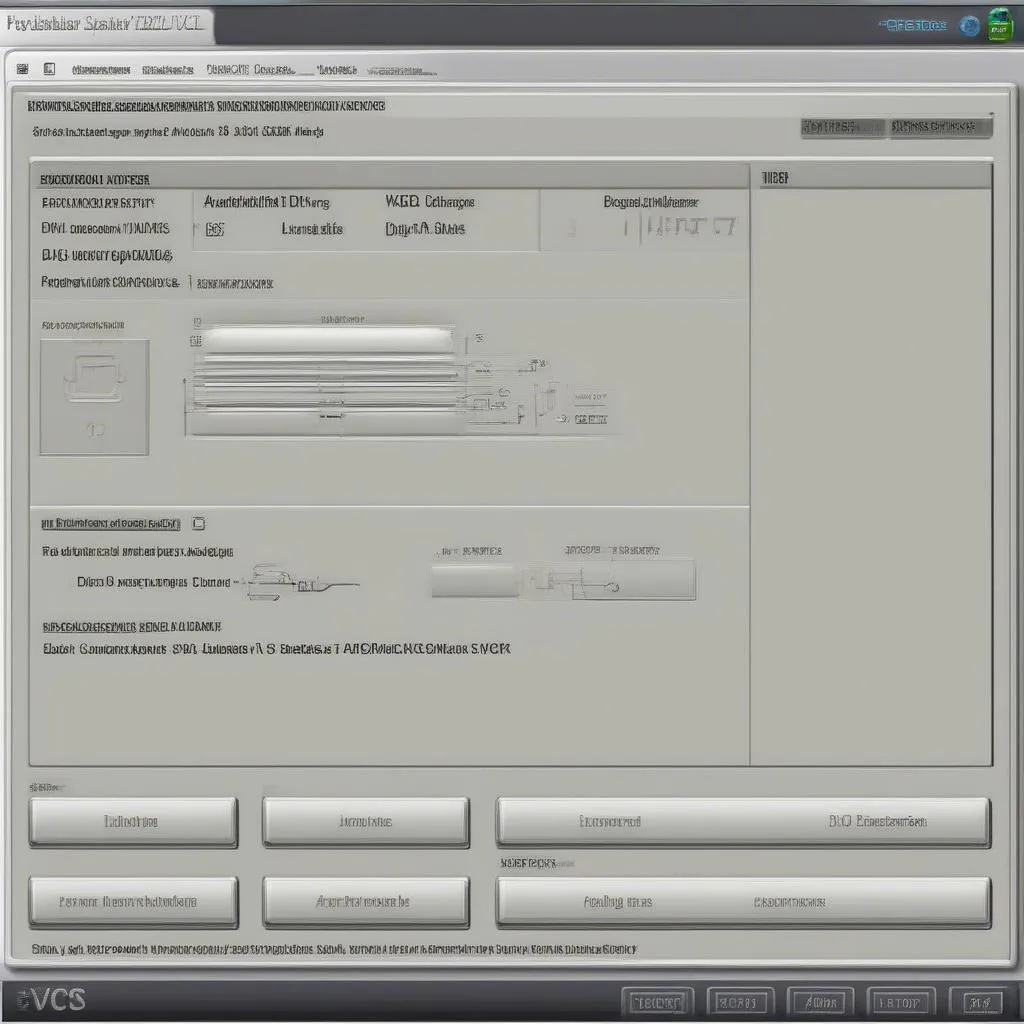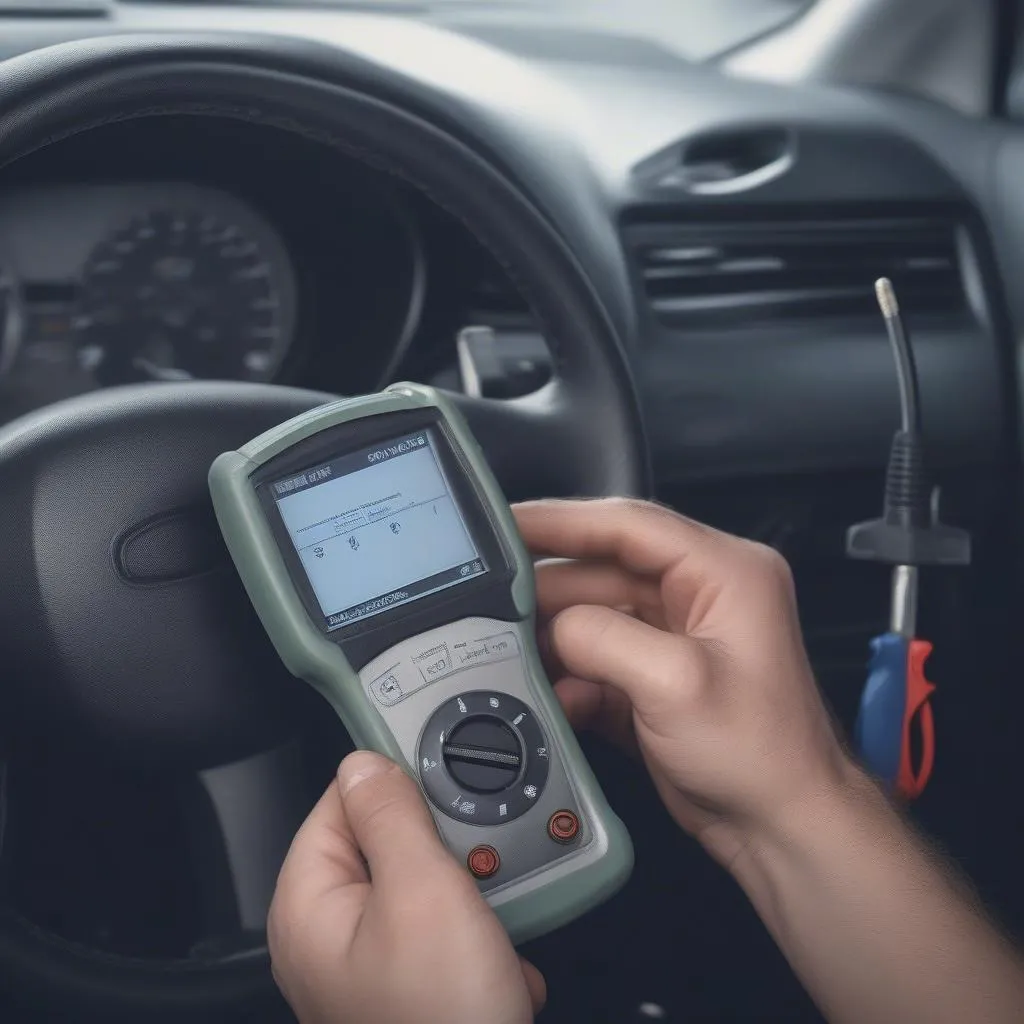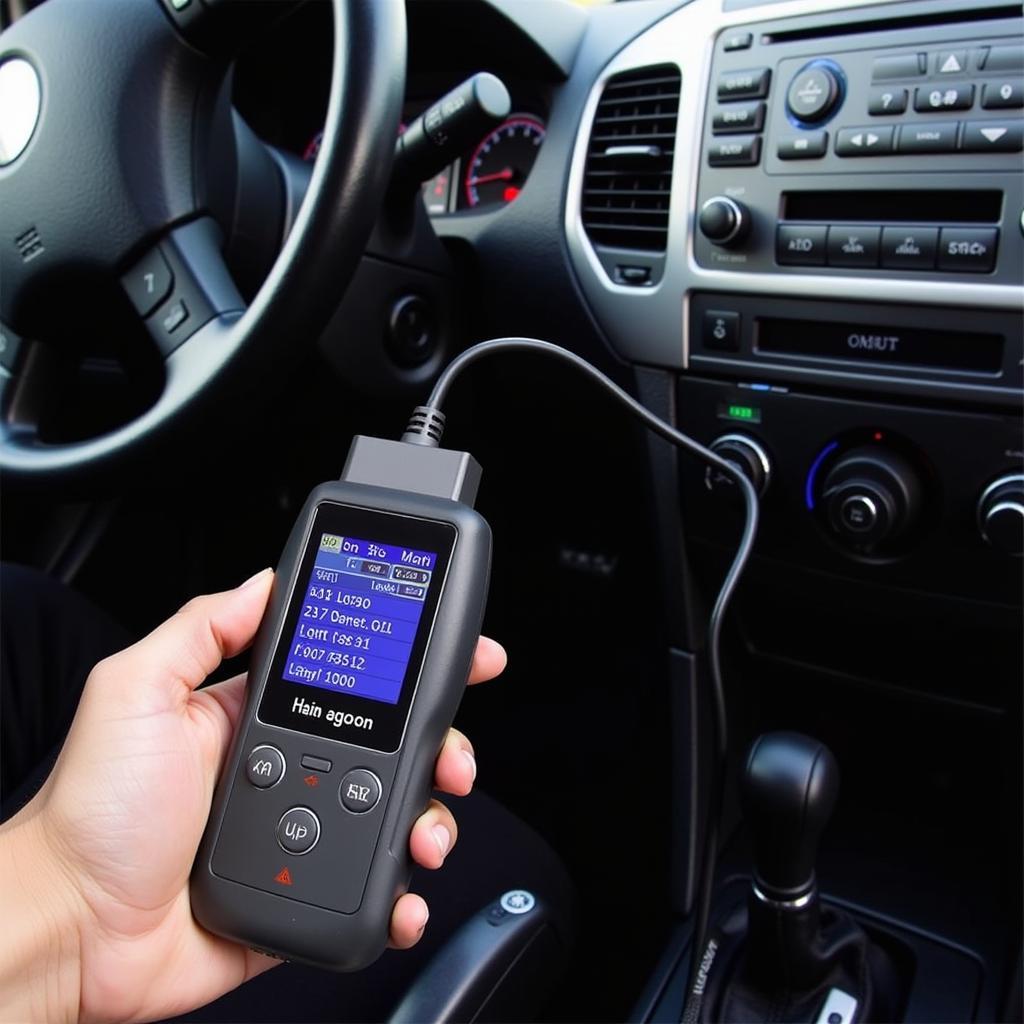Bleeding your car’s brakes is a crucial maintenance task that ensures optimal braking performance and safety on the road. While traditional methods exist, using a VCDS (VAG-COM Diagnostic System) scan tool offers a more efficient and precise approach, especially for vehicles in the Volkswagen Audi Group (VAG). This article delves into the intricacies of VCDS brake bleeding, providing a step-by-step guide, addressing common queries, and highlighting the benefits of this advanced technique.
Understanding VCDS and Its Role in Brake Bleeding
VCDS, commonly known as VAG-COM, is a powerful diagnostic software that allows users to interface with the electronic control units (ECUs) of VAG vehicles. This software grants access to various modules, including the ABS (Anti-lock Braking System), which is instrumental in bleeding brakes electronically.
 VCDS Software Interface
VCDS Software Interface
Advantages of VCDS Brake Bleeding
-
Efficiency: VCDS automates the process of cycling the ABS pump and solenoids, significantly reducing the time and effort required compared to traditional methods.
-
Precision: This method ensures a complete and thorough bleed by activating the ABS system, eliminating air pockets that might remain trapped using conventional techniques.
-
Safety: By providing real-time data and control over the ABS module, VCDS bleeding enhances safety by minimizing the risk of human error.
 Car Brake Bleeding Process
Car Brake Bleeding Process


